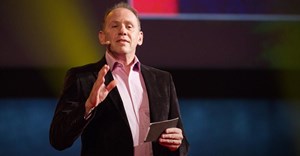
How to keep that human capital
In addition, respondents who frequently thought of quitting their jobs were mainly young African employees under 30 and that managers were playing little, if any, role in positively influencing engagement.
Employees may now move on
Employee engagement is defined as a “psychological state” within which an employee connects and identifies at a personal level with his or her job and organisation, resulting in retention and improved performance.
The research indicated that young employees are going beyond conventional notions of organisational practices by seeking personal meaning in their work before seeking a fit with their job or organisation. They are putting personal fulfilment ahead of company needs.
In the current economic conditions and limitations on job mobility, young employees might have been pressured to look for greater meaning in their work and ways to be more resourceful. However, with an upturn in the economy, many of these young employees with a strong sense of resourcefulness will feel more confident about finding other work and will look for employment that is more meaningful to them.
Employees need coaching
Interestingly, supervisors and managers ranked the lowest for factors influencing employee engagement. Managers can and should influence the extent to which young employees connect to their jobs and the organisation. The research illustrated that young employees seek a shift from an organisational-focused to a more individual-based management approach.
This means managers need to change the way they engage their people towards a coaching style, which presents an empowering relationship that facilitates the creation of meaningful, challenging work, which tests peoples' resourcefulness.
Review 2010 tactics
Many organisations will be placing young graduates on development/internship programmes in their organisations in 2010. These programmes require huge financial investment, which places pressure on the organisations to achieve a significant return on expectations ie feeding the talent pipeline. The researchers suggest seven tactics to retain this talent.
- Develop meaningful, structured development programmes that will challenge these recruits at emotional, intellectual and physical levels
- Build personal change resilience to assist recruits to cope in today's complex organisational environment and resourcefulness to provide them with the confidence and initiative to perform in these difficult times.
- Conduct career conversations with recruits to establish aspirations and possible career paths.
- Assign both mentor and coach to each recruit or group of recruits. The coach needs to be responsible for functional (job) development aspect and executive mentor for personal and organisational aspects of their careers.
- Build capacity of the line managers on how they should manage these young recruits.
- Involve recruits in selected senior management conferences, events and projects to provide exposure to the organisational culture.
- Monitor progress and provide regular feedback to graduate recruits.
Employee engagement is critical, as engaged employees perform better and are more likely to prolong retention within an organisation.





















